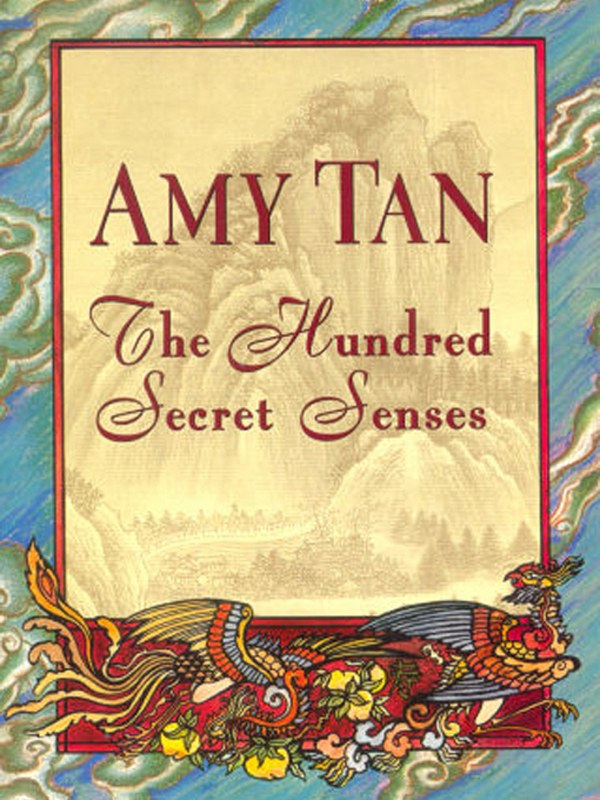
The Hundred Secret Senses
A Novel
کتاب های مرتبط
- اطلاعات
- نقد و بررسی
- دیدگاه کاربران
نقد و بررسی

Starred review from April 1, 1996
Again grounding her novel in family and the workings of fate, Tan (The Kitchen God's Wife) spins the tale of two sisters, two cultures, and several acts of betrayal. Kwan, who came to San Francisco from China when she was 18, remains culturally disjointed, a good-natured, superstitious peasant with a fierce belief that she has ``yin eyes,'' which enable her to see ghosts. Kwan's younger half-sister Olivia (or Libby-ah, as Kwan calls her) is supremely annoyed by Kwan's habit of conversing with spirits and treats her with disdain. Despite herself, however, Libby is fascinated by the stories Kwan tells of her past lives, during one of which, in the late 1800s, she claims to have befriended an American missionary who was in love with an evil general. Kwan relates this story in installments that alternate with Libby's narration, which stresses her impatience with Kwan's clinging presence. But Kwan's devotion never cools: ``She turns all my betrayals into love that needs to be betrayed,'' Libby muses. When circumstances take Kwan, Libby and Libby's estranged husband, Simon, back to Kwan's native village in China on a magazine assignment, the stories Kwan tells--of magic, violence, love and fate--begin to assume poignant--and dangerous--relevance. In Kwan, Tan has created a character with a strong, indelible voice, whose (often hilarious) pidgin English defines her whole personality. Needy, petulant, skeptical Libby is not as interesting; though she must act as Kwan's foil, demonstrating the dichotomy between imagination and reality, she is less credible and compelling, especially when she undergoes a near-spiritual conversion in the novel's denouement. Indeed, some readers may feel that the ending is less than satisfactory, but no one will deny the pleasure of Tan's seductive prose and the skill with which she unfolds the many-layered narrative. Major ad/promo; BOMC and QPB main selections; author tour.

October 28, 1996
Tan's novel of the conflicts between two very different Chinese American sisters spent 12 weeks on PW's bestseller list.

Starred review from November 15, 1995
As in The Joy Luck Club (LJ 2/15/89), Tan unwinds another haunting tale that examines the ties binding Chinese Americans to their ancestors. Nearing divorce from her husband, Simon, Olivia Yee is guided by her elder half-sister, the irrepressible Kwan, into the heart of China. Olivia was five when 18-year-old Kwan first joined her family in the United States, and though always irritated by Kwan's oddities, Olivia was entranced by her eerie dreams of the ghost World of Yin. Only when visiting Kwan's home in Changmian does Olivia realize the dreams are, in Kwan's mind, memories from past lives. Kwan believes she must help Olivia and Simon reunite and thereby fix a broken promise from a previous incarnation. Tan tells a mysterious, believable story and delivers Kwan's clipped, immigrant voice and engaging personality with charming clarity. Highly recommended. [Previewed in Prepub Alert, LJ 6/1/95.]-Sheila Riley, Smithsonian Inst. Libs., Washington, D.C.

July 1, 1996
YA-Olivia, the narrator of this story, was born to an American mother and a Chinese father. She meets her 18-year-old Chinese half sister, Kwan, for the first time shortly after their father's death. Kwan adores "Libby-ah" and tries to introduce her to her Chinese heritage through stories and memories. Olivia is embarrassed by her sibling, but finds as she matures that she has inadvertently absorbed much about Chinese superstitions, spirits, and reincarnation. Olivia explains, "My sister Kwan believes she has Yin eyes. She sees those who have died and now dwell in the World of Yin..." Now in her mid-30s, Olivia, a photographer, is still seeking a meaningful life. The climax of the story comes when she and her estranged husband Simeon, a writer, go to China on assignment with Kwan as the interpreter. In the village in which she grew up, Kwan returns to the world of Yin, her mission completed. Olivia finally learns what Kwan was trying to show her: "If people we love die, then they are lost only to our ordinary senses. If we remember, we can find them anytime with our hundred secret senses." The meshing of the contemporary story of Olivia and the tales Kwan tells of her past life in late-19th century China may confuse some readers. Although this story is different from Tan's previous novels because of the supernatural twist, YAs will find some familiar elements.-Carol Clark, R. E. Lee High School, Springfield, VA

September 15, 1995
Tan, a critical and commercial favorite, returns to the fiction scene after a four-year absence with a risky, ambitious novel that tackles themes of loyalty, connectedness, and what it means to be a family. When Olivia Yee's half-sister, Kwan, arrives from China, Olivia's life is irrevocably changed. For one thing, Kwan has yin eyes--she can see ghosts. Every night as they were growing up, Kwan told Olivia bedtime stories about the same group of yin people: a woman named Banner, a man named Cape, a one-eyed bandit girl, and a half-and-half man. But, for Olivia, Kwan is also a perpetual source of embarrassment due to her endless questions, fractured English, and boundless optimism. When Olivia separates from her husband, Simon, Kwan schemes to get them back together, and the three take a trip to China to visit the village where Kwan grew up and to learn the secret of their connection to the yin people. Tan's fantastical novel is both mesmerizing and awkward. She is obviously betting that readers will find the ancient and modern worlds she draws here equally fascinating, but Kwan steals every scene she appears in, and her magnetic ghost stories completely overpower Olivia's more modern tale of a broken relationship. It's no contest, for who can resist the lure of a good old-fashioned ghost story? ((Reviewed Sept. 15, 1995))(Reprinted with permission of Booklist, copyright 1995, American Library Association.)

























دیدگاه کاربران